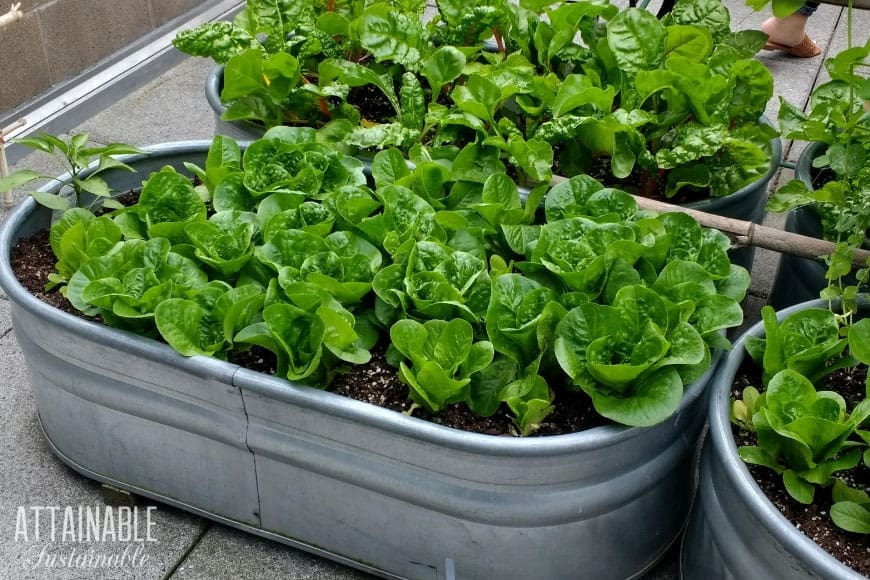Grow Veggies in Containers: Top Tips for a Thriving Urban Garden

Are you dreaming of fresh, homegrown vegetables but lack the space for a traditional garden? Welcome to the world of container vegetable gardening! Imagine transforming your balcony or patio into a lush, edible oasis. Let's dive into the top tips for growing vegetables in containers, turning your small space into a green sanctuary.
Why Choose Container Vegetable Gardening?
Container gardening is not just a trend; it's a practical solution for urban dwellers. It allows you to grow fresh produce in limited spaces, whether it's a balcony, rooftop, or even a windowsill. Plus, it's incredibly rewarding to harvest your own vegetables right from your doorstep.
Getting Started: Choosing the Right Containers
Selecting the Perfect Pots
The first step in container vegetable gardening is choosing the right pots. Opt for containers that are at least 12 inches deep and wide to provide ample room for root growth. Materials like plastic, terracotta, and wood are all great choices, each with its own advantages.
Drainage is Key
Ensure your containers have adequate drainage holes to prevent waterlogging, which can lead to root rot. A well-draining pot is crucial for the health of your plants.
The Best Vegetables for Container Gardening
Compact and Productive Varieties
Not all vegetables are created equal when it comes to container gardening. Look for compact or dwarf varieties that are specifically bred for small spaces. Some excellent choices include:
- Tomatoes: Cherry or patio varieties
- Peppers: Sweet or hot, compact types
- Lettuce: Loose-leaf varieties
- Radishes: Quick-growing and space-efficient
- Herbs: Basil, parsley, and chives
/great-vegetables-to-grow-in-containers-848214-hero-65f115c9dab2463293b8296e85a73a71.jpg)
Soil and Fertilizer: The Foundation of Success
Choosing the Right Soil
The soil you use in your containers is crucial. Opt for a high-quality potting mix designed for container gardening. These mixes are lightweight and provide good drainage, which is essential for healthy plant growth.
Feeding Your Plants
Container plants rely on you for their nutrients. Use a balanced, slow-release fertilizer to ensure your vegetables get the nutrients they need. Regular feeding will keep your plants healthy and productive.
Watering and Light: Essential Elements
Consistent Watering
Container gardens dry out faster than traditional gardens, so consistent watering is essential. Check the soil daily and water when the top inch feels dry. Remember, underwatering is just as harmful as overwatering.
Maximizing Sunlight
Most vegetables need at least 6-8 hours of sunlight per day. Position your containers in a sunny spot to ensure your plants get the light they need to thrive.
Pest and Disease Management
Preventative Measures
Prevention is the best cure when it comes to pests and diseases. Keep your plants healthy with regular care and inspection. Remove any diseased leaves promptly and use organic pest control methods when necessary.
Companion Planting
Companion planting can help deter pests naturally. For example, planting marigolds near your vegetables can repel certain pests. Research companion plants that work well with your chosen vegetables.
Harvesting and Enjoying Your Bounty
Timing is Everything
Knowing when to harvest your vegetables is key to enjoying their best flavor. Most vegetables have specific signs that indicate they are ready to be picked. For example, tomatoes should be fully colored and slightly soft to the touch.
Storing Your Harvest
Proper storage can extend the life of your fresh produce. Store vegetables in a cool, dark place or in the refrigerator, depending on the type. Enjoy your homegrown veggies in delicious meals!
/vegetable-gardening-in-small-spaces-1403451-01-aa94b9199ba145079de2417b219c89b4.jpg)
Conclusion: Embrace the Joy of Container Gardening
Container vegetable gardening is a rewarding hobby that brings fresh produce right to your doorstep. By following these top tips, you can transform any small space into a thriving urban garden. Whether you're a seasoned gardener or a beginner, the joy of growing your own vegetables is unmatched. So, grab your pots, choose your seeds, and let the gardening adventure begin!
FAQs
What are the best vegetables for container gardening?
- Compact and productive varieties like cherry tomatoes, lettuce, radishes, and herbs are ideal for container gardening.
How often should I water my container vegetables?
- Check the soil daily and water when the top inch feels dry. Consistent watering is crucial for container gardens.
What type of soil is best for container gardening?
- A high-quality potting mix designed for container gardening is ideal. These mixes are lightweight and provide good drainage.
How much sunlight do container vegetables need?
- Most vegetables need at least 6-8 hours of sunlight per day. Position your containers in a sunny spot to ensure adequate light.
How can I prevent pests and diseases in my container garden?
- Regular care and inspection, removing diseased leaves promptly, and using organic pest control methods can help prevent pests and diseases. Companion planting can also deter pests naturally.
Happy gardening!
0 Response to "Grow Veggies in Containers: Top Tips for a Thriving Urban Garden"
Post a Comment